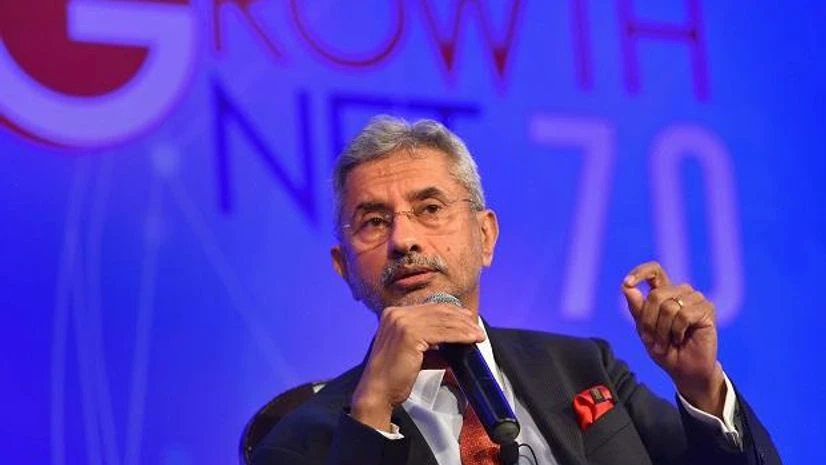India has been "prisoner of its past image" and the country must get over it, External Affairs Minister S Jaishankar said on Wednesday, noting that an effort to "rebalance" its approach in dealing with key challenges was underway.
Answering a question at the Raisina Dialogue on how his ministry is dealing with criticism over Kashmir, NRC and the new citizenship law, he said the key question should be whether India is going to define itself or will it allow others to define it.
"One aspect of re-balancing where India is concerned is today are we going to define ourselves or are we going to let other people define us. I would like to believe that it is the first. That is my political outlook and that of my party," he said.
He said it is important to reflect on how India responded to common challenges which were faced by many countries globally.
"Even something like naturalisation, what is the pathway the other nations have taken with regard to naturalisation of people. I think it is worthwhile looking at it," Jaishankar said.
"Don't get fixated on the dots and ignore the line. These are important issues. At the end of the day they reflect the mindset towards governance," he said.
More From This Section
"A lot of what has happened in the last six months are sort of in the political sphere but the same mindset was also evident when it came to socio-economic issues," he added.
India has faced criticism from many countries over the lockdown in Kashmir, the roll out of National Register of Citizens in Assam as well as on the new citizenship law.
Asked on India's poor track record of implementation of development projects abroad as well as challenges in foreign policy domain, he said the country is a "prisoner of its past image" and it must get over it.
Jaishankar indicated that the current government inherited a lot of problems and the effort now has been to not pass on them to future governments.
"The bottomline is: are we going to just inherit problems, multiply them, pass it on, or are we going to deal with some of them and probably leave the people who come after us better off," he said.
"People are entitled to have opinions, but people are also entitled to have opinion on other people's opinions. So I think life should be a two-way street," he said.
Jaishankar also said that India's way is not to be disruptive and it is more of a decider than an abstainer, in remarks that come at a time several countries have called for a greater Indian role in the Indo-Pacific.
The minister said it is not the India's way to be mercantilist.
In his address, Jaishankar also referred to tensions between the US and Iran and said they are two individualistic countries and what finally happens will depend on the players involved.
India is firmly dealing with terrorism, he added. "There was a time when we spoke more than what we did. It is changing now," the minister said.
On India pulling out of RCEP, he said the onus was on countries which were part of it.
"Where RCEP is concerned, we have to look at cost and benefit. We will evaluate RCEP on its economic and trade merit. We have not closed our mind to it," Jaishankar said.
He also asserted that "we are not under-delivering on India-US relationship".
There is no area of activity where India and the US are not working together, he said.
Noting that the world has common challenges, he said, "Terrorism is a common challenge. Separatism is a common challenge. Migration is a common challenge. World has to ask itself how do they handle these challenges.

)
